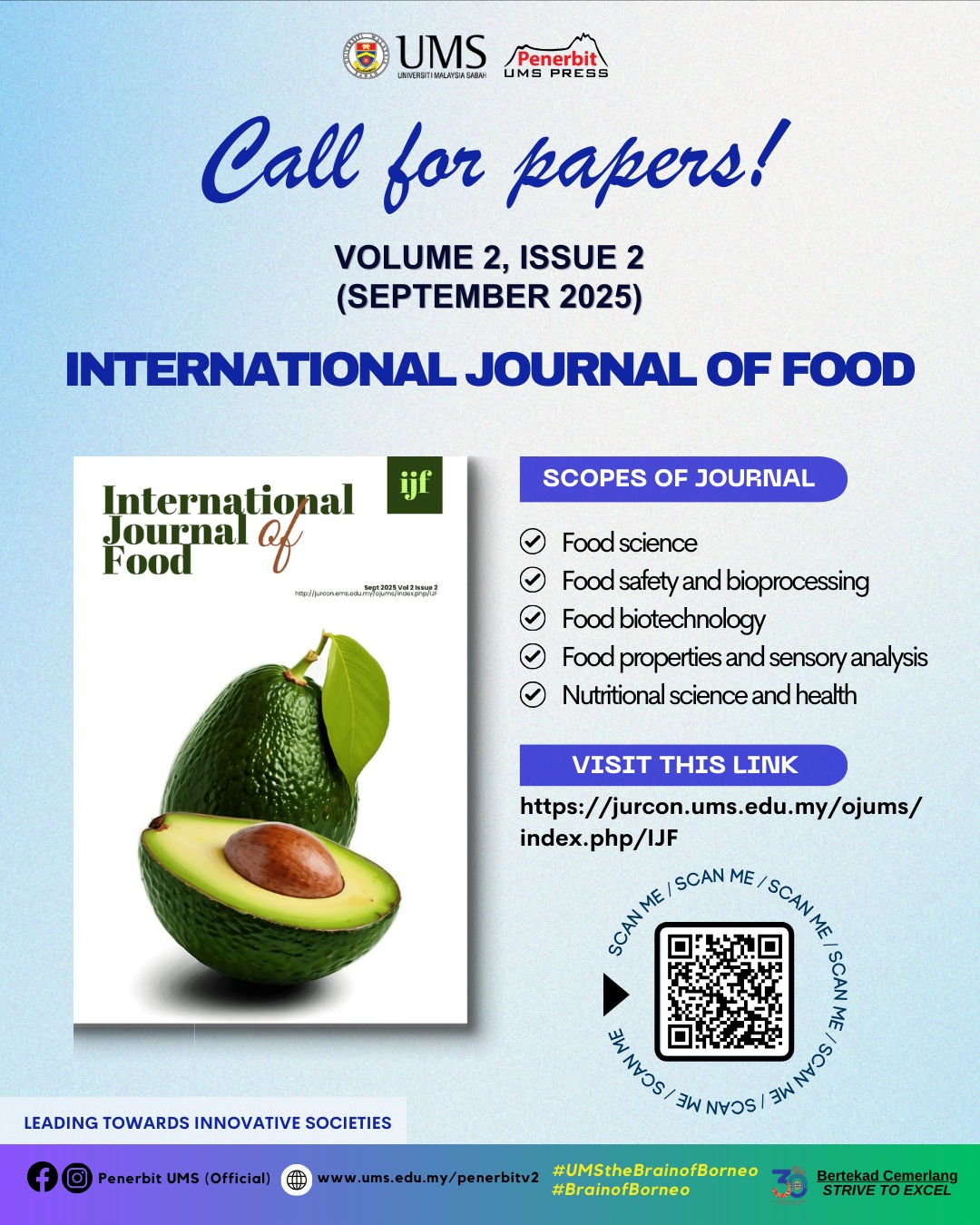The Polyphenols as Natural Antioxidants: Mechanisms and Applications in Meat and Fish Preservation
DOI:
https://doi.org/10.51200/ijf.v2i1.5426Keywords:
Antioxidant, meat quality, natural preservative, polyphenol, shelf lifeAbstract
Lipid oxidation is the primary reason for the decline in meat quality during and storage process. The free radical formation can be prevented by using antioxidants which slow down lipid oxidation, maintain sensory attributes, and minimize the introduction of unacceptable flavors. The usage of plant extract-based antioxidants appears to be a promising alternative to synthetic antioxidants, which adversely affect human health, such as toxicity and carcinogenicity. To provide safe and affordable meat to customers, researchers, and industry are exploring the potential of natural antioxidants as a substitute for synthetic antioxidants.
The most effective method for partially or completely replacing synthetic food preservatives is to use plants rich in polyphenolic compounds as natural substitutes. These natural sources include fruits, plant extracts, essential oils, vegetables, spices, olives, and herbs. The antibacterial and antioxidant properties of these phenolic compounds stem from the existence of aromatic rings with hydroxyl groups, which is a shared characteristic among all these compounds.
This review intends to explore several key objectives: understanding the process of lipid oxidation and how antioxidants work to counteract it, discussing the role of various natural preservatives, particularly polyphenols, and reviewing existing literature on the utilization of polyphenols to extend the meat's shelf life.










